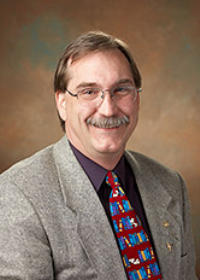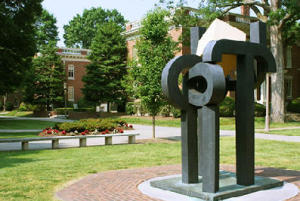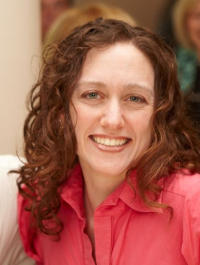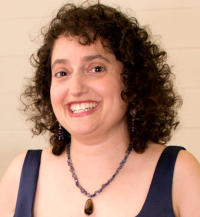
|
The Mathematical Association of America Maryland-District of Columbia-Virginia Section |
- Home
- History
- Main History Page
- Section History Document
- List of Past Officers
- Charter Members
- African-American Participation
- Stories from Section Members
- Section NExT Fellows
- Obituaries
- Smith Award Recipients
- Christensen Award Recipients
- Meritorious Service Award Recipients
- Undergraduate Award Winners
- Meeting Archive
- Past Meetings
- Talk Archive
- Old Section NExT Programs
- Newsletter Archive
- Meeting Minutes Archive
- Miscellaneous Documents
- Meetings
- Minutes
- Fall 2024 Executive
- Fall 2024 Membership
- Spring 2024 Executive
- Spring 2024 Membership
- Fall 2023 Executive
- Fall 2023 Membership
- Spring 2023 Executive
- Spring 2023 Membership
- Fall 2022 Executive
- Fall 2022 Membership
- Spring 2022 Executive
- Spring 2022 Membership
- Fall 2021 Executive
- Fall 2021 Membership
- Spring 2021 Executive
- Spring 2021 Membership
- Fall 2020 Executive
- Fall 2020 Membership
- Fall 2019 Executive
- Fall 2019 Membership
- Spring 2019 Executive
- Spring 2019 Membership
- Fall 2018 Executive
- Fall 2018 Membership
- Spring 2018 Executive
- Spring 2018 Membership
- Fall 2017 Executive
- Fall 2017 Membership
- Spring 2017 Executive
- Spring 2017 Membership
- Minutes Archive
- Newsletters
- Section NExT
- Awards
- Students
- Links
- Search
Spring 2011 Meeting at Randolph-Macon College
The Spring 2011 meeting of the section was held on April 15-16, 2011 at Randolph-Macon College. The Friday afternoon workshop was A Game Theory Approach to Quantitative Literacy, given by Richard Gillman from Valparaiso University. Sommer Gentry from the US Naval Academy give the Friday evening banquet address Faster, Safer, Healthier: Adventures in Operations Research. On Saturday, we had two invited addresses. Richard Gillman talked about Everyday Questions, Not-So-Everyday Mathematics and Sarah Greenwald from Appalachian State University presented Rubik's Cube Games on Spheres: Geometry of Spherical Orbifolds. We also had our annual Undergraduate Student Conference, featuring student paper and poster sessions, a Jeopardy competition, and new this year, the Radical Dash, an Amazing Race style game but radically different. Invited Addresses
Richard Alan GillmanValparaiso UniversityWorkshop: A Game Theory Approach to Quantitative Literacy Abstract: This workshop explores the ways in which game theory topics can be used to motivate a general audience of students to review basic mathematics skills, and to utilize them to solve real problems from a quantitative perspective. Over the course of the two hours, participants play deterministic games and coalition games while exploring key solution concepts. Invited Address: Everyday Questions, Not-So-Everyday Mathematics Abstract: The world is full of un-explored mathematical problems. This talk presents the stories of three problems that the presenter found in his everyday world and investigated with undergraduate research partners. One is solved completely, one quickly reaches deep and un-explored mathematical territory, and the third, while not solved, opens many paths for further exploration. Biographical Sketch: Rick Gillman completed his undergraduate work at Ball State University and earned his Doctorate of Arts at Idaho State University in 1986. He has worked at Valparaiso University since then, rising to the rank of Professor. Along the way he served as Assistant Dean for Sponsored Research and Faculty Development, was the founding director of VU’s Celebration of Undergraduate Scholarship, and is in his eighth year as chair of his department. Rick has edited to two volumes published by the Mathematical Association of America (MAA), A Friendly Competition and Current Practices in Quantitative Literacy, and currently serves as chair of the MAA’s Problem Series Editorial Board. He is also Chair of the MAA Committee on Sections. Rick recently co-authored Models of Conflict and Cooperation, published by the American Mathematical Society.
Sommer GentryUS Naval AcademyBanquet Address: Faster, Safer, Healthier: Adventures in Operations Research Abstract: While mathematical advances of all sorts have impacted our world for the better, operations research is a branch of mathematics that is expressly focused on applying advanced analytical methods to help make better decisions. Operations researchers have eased traffic jams by closing selected streets, and gotten packages to you more quickly by planning U.P.S. routes with fewer left turns. Operations researchers have shown which personal decisions are the leading causes of death, and planned maintenance schedules to minimize bridge collapses. The mathematical tools of operations research, like using random numbers to simulate a range of outcomes when some data are unknown, or finding clever algorithms that shortcut the need to try every possible decision in order to find the best one, can be recycled to solve problems everywhere in our world. In this talk, I will describe some of my O.R. forays into far-flung fields, and tell my favorite stories about O.R. Biographical Sketch: Sommer Gentry is Associate Professor of Mathematics at the U.S. Naval Academy and is also affiliated with the Johns Hopkins University School of Medicine. She studied Operations Research at Stanford University and M.I.T. She was a Department of Energy Computational Science Graduate Fellow from 2001-2005, and won a CSGF contest for excellence in technical writing that conveys computational science to a lay audience. She designed optimization methods used for nationwide kidney paired donation registries in both the United States and Canada. Her work has attracted the attention of major media outlets including Time Magazine, Reader’s Digest, Science, the Discovery Channel, and the Diane Rehm show. In 2009, she receive the MAA’s Henry L. Alder award for distinguished teaching by a beginning mathematics faculty member.
Sarah GreenwaldAppalachian State UniversityInvited Address: Rubik's Cube Games on Spheres: Geometry of Spherical Orbifolds Abstract: We'll slice up basketballs in order to form new spaces like footballs and triangular pillows, and then look at the geometry of the resulting spaces, called orbifolds. Orbifolds furnish a natural starting point for the study of singular spaces and they are especially of interest to mathematicians and physicists. Diverse applications of orbifolds include connections to crystallography, string theory and music theory. Many results, such as those requiring local analysis, generalize easily to the orbifold setting, but most global results do not. Imagine a spherical Rubik's game where you can rotate spherical triangles on the surface of the sphere. This game exists and is called the Impossiball and we'll use it to help understand orbifolds, as we look at lots of examples and results related to the diameter, Euler characteristic, and spectrum. Biographical Sketch: Sarah J. Greenwald is Professor of Mathematics and a Women's Studies core faculty member at Appalachian State University. She received her PhD from the University of Pennsylvania. Her scholarship areas include Riemannian geometry, popular culture as it pertains to mathematics, and women and minorities in mathematics, and she is a 2005 Mathematical Association of America Alder Award winner for distinguished teaching and the 2010 Appalachian State University Wayne D. Duncan Award for Excellence in Teaching in General Education. She was also inducted into the Appalachian State University College of Arts and Sciences Academy of Outstanding Teachers in 2010. She is a member of the executive committee of the Association for Women in Mathematics and the editorial board of PRIMUS. She co-created the educational website SimpsonsMath.com with Andrew Nestler. While it is not affiliated with the show, the site was mentioned in the audio commentary of the 7th season of The Simpsons. Her interactive mathematics lecture has been distributed on approximately one million DVDs worldwide as a 25-minute DVD extra for the 20th Century Fox Futurama movie Bender's Big Score and it is listed as "Mind-bending." Dr. Greenwald has spoken about the impacts of scientific popular culture representations on NPR's Science Friday and all over the country. |
Copyright © 2012 - The Mathematical Association of America
Please send comments, suggestions, or corrections for this page to Brian Heinold at heinold@msmary.edu
Last Modified: 03/05/2012 - 09:16pm


